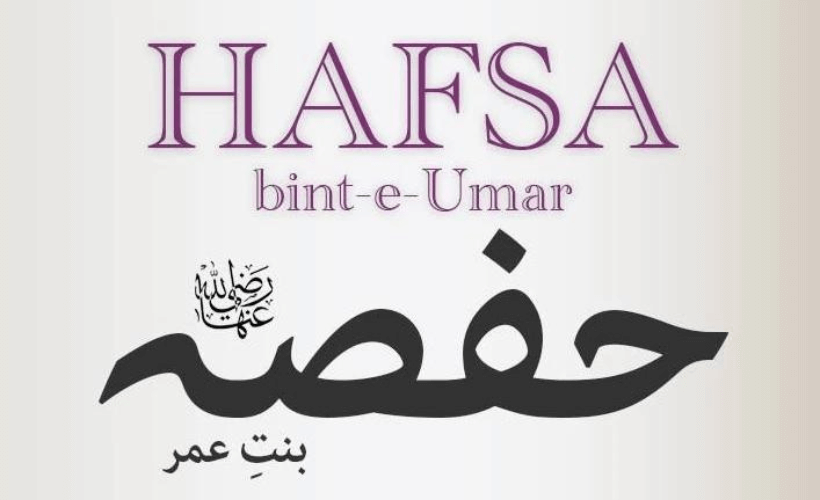Early Life :
Birth and Family Background :
Hafsah was born in Mecca around 605 CE into a respected Qurayshi
family. Her father, Umar ibn al-Khattab, was one of the Prophet's closest companions and a powerful
leader in the early Muslim community. Her mother, Zainab bint Maz’un, was also known for her piety
and nobility. Growing up in such a family, Hafsah was exposed to the strength of character, faith,
and resilience from a young age.
Marriage to Khunais ibn Hudhafah :
Before marrying the Prophet, Hafsah was married to Khunais ibn
Hudhafah al-Sahmi, a devout Muslim who had participated in the early migration to Abyssinia and
later to Medina. He was also a companion of the Prophet and fought in the Battle of Badr. Sadly,
Khunais was severely wounded during the Battle of Uhud and passed away shortly after, leaving Hafsah
a widow.
Marriage to Prophet Muhammad (PBUH) :
Marriage Proposal :
After Khunais's death, Hafsah's father, Umar, was concerned about her future. He
approached both Uthman ibn Affan and Abu Bakr al-Siddeeq with marriage proposals for her, but they
both declined. When Prophet Muhammad (PBUH) heard about this, he offered to marry Hafsah, providing
comfort and security to her. Their marriage strengthened the ties between the Prophet and Umar and
placed Hafsah in the revered role of "Mother of the Believers" (Umm al-Mu’minin).
Role in Early Islam :
Religious Devotion :
Hafsah was known for her deep faith and dedication to worship. She would often
spend long hours in prayer, fasting regularly, and engaging in worship. Her devotion to Allah (SWT)
was a defining trait, earning her a respected place among the Prophet’s wives.
Custodian of the Quran :
One of Hafsah’s most significant contributions to Islam was her role as the
custodian of the written Quran. After the death of Prophet Muhammad (PBUH), the first Caliph, Abu
Bakr, ordered the Quranic verses to be compiled in a single book due to the fear of losing them.
This compilation was entrusted to Hafsah after her father, Umar, became Caliph. She carefully
preserved the manuscript, which later served as the foundation for Caliph Uthman’s standardization
of the Quranic text. This act earned Hafsah a lasting place in the history of Islamic scholarship.
Personal Characteristics and Legacy :
Intelligence and Strong Character :
Hafsah was known for her intelligence and strong will. She was
assertive and unafraid to speak her mind, which sometimes led to spirited discussions with the
Prophet. However, her resilience and strength of character were qualities that were respected by
those around her.
A Role Model for Muslim Women :
Hafsah’s life illustrates the role of Muslim women in the
preservation and dissemination of Islamic teachings. Her dedication to the Quran and her commitment
to worship serve as an example of piety and faith for Muslim women.
Later Life and Death :
Life after the Prophet’s Death : After the passing of Prophet Muhammad (PBUH), Hafsah continued to
live in Medina and maintained her devotion to the Quran and teaching. She remained active in the
community and was respected as a source of knowledge and guidance for the early Muslims.
Passing :
Hafsah passed away in 665 CE (45 AH) during the caliphate of her brother-in-law, Caliph
Muawiyah ibn Abi Sufyan. She was buried in Jannat al-Baqi, the cemetery in Medina where many of the
Prophet’s companions and family members are also buried.
Legacy :
Hafsah bint ‘Umar (رَضِيَ ٱللَّٰهُ عَنْهَا) is remembered as a woman of profound faith and strength.
Her role as the guardian of the first Quranic manuscript underscores her importance in Islamic
history. As a wife of the Prophet and the daughter of Umar, her life was marked by devotion to Allah
and dedication to the teachings of Islam. Her contributions to the preservation of the Quran have
left an enduring impact on the Muslim world, and her character continues to inspire generations of
Muslims to cherish and uphold the teachings of Islam.



